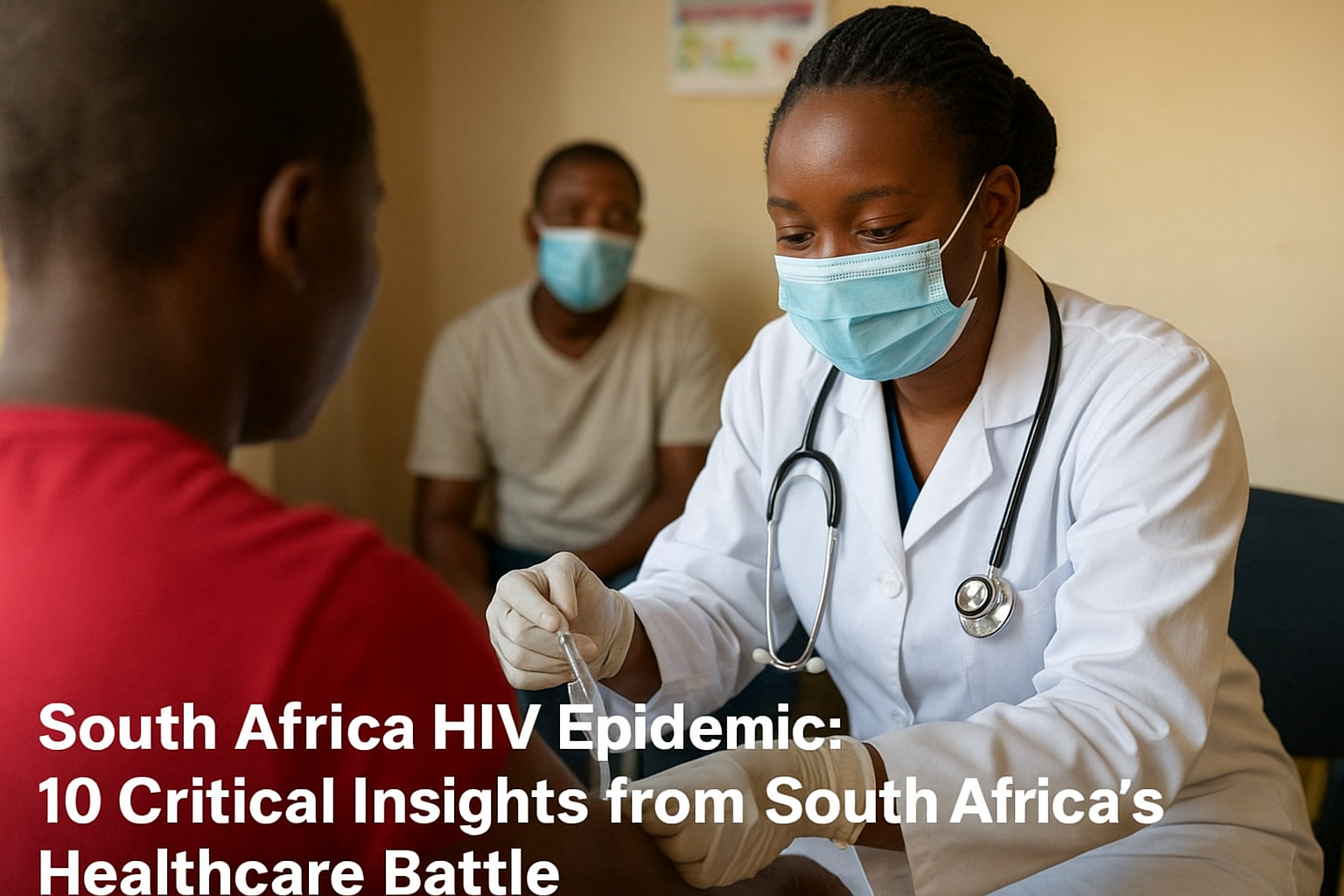South Africa’s HIV Epidemic: 10 Alarming Lessons from the Healthcare Crisis
South Africa HIV is confronting a critical stage in its battle against HIV, with new infections rising and drug-resistant strains emerging. This public health challenge demands innovative strategies, dedicated healthcare leadership, and community engagement. This article highlights the pioneering work of Dr. Nomathemba Chandiwana and her team, shedding light on treatment, prevention, and systemic interventions that are reshaping South Africa’s HIV response.
1. Clinical Leadership and Patient Care
Dr. Chandiwana has become a central figure in HIV healthcare in South Africa, leading multiple clinics and treatment programs. Her approach emphasizes early detection, patient centered care, and regular monitoring, ensuring that patients not only receive effective antiretroviral therapy (ART) but also emotional and psychological support. Her programs prioritize adherence and continuity of care, reducing viral load and improving patient outcomes. Learn more about national treatment protocols on our HIV Treatment Guidelines page.
2. Tackling Drug Resistance Challenges
The rise of drug-resistant HIV strains has complicated treatment approaches. Dr. Chandiwana works closely with laboratory teams to identify resistance patterns and adapt ART regimens accordingly. This strategy helps maintain treatment efficacy and prevents the spread of resistant strains. For up to date research on ART advancements, visit News24 Health News.
3. Mental Health Support for South Africa HIV Patients
Living with HIV often brings psychological stress due to stigma, fear, and social isolation. Dr. Chandiwana integrates mental health services into clinical care, offering counseling, peer support groups, and educational programs. These initiatives improve adherence to treatment, enhance quality of life, and foster community resilience. Explore additional mental health resources in our Mental Health Support Programs.
4. Strengthening South Africa HIV Prevention Campaigns
Prevention remains a cornerstone of South Africa’s HIV strategy. Dr. Chandiwana collaborates with local NGOs and government programs to distribute condoms, educate youth, and provide pre exposure prophylaxis (PrEP). Innovative outreach campaigns using social media and mobile clinics have expanded reach into rural and high risk areas. For community-based prevention strategies, check our internal HIV Prevention Programs resource.
5. Integration with Primary Healthcare
Integrating HIV care into broader primary healthcare services ensures patients receive comprehensive care. Clinics under Dr. Chandiwana’s supervision offer treatment for tuberculosis, diabetes, and other comorbidities alongside HIV services. This holistic approach improves patient retention and reduces the burden on specialized centers. Learn more about integrated care models in our Primary Healthcare Integration guide.
6. Research and Clinical Trials
Cutting-edge research informs South Africa HIV response. Dr. Chandiwana participates in clinical trials evaluating new ART drugs and vaccine candidates. These studies aim to optimize treatment protocols and discover innovative prevention methods. Researchers collaborate internationally, sharing data with partners like UNAIDS to improve global HIV strategies.
7. Public Awareness and Education
Educating the public is vital to reduce stigma and increase testing rates. Dr. Chandiwana’s team conducts workshops, school programs, and community seminars. Social media campaigns amplify outreach, targeting young people with informative content about prevention, testing, and treatment adherence. For additional educational materials, visit HIV Awareness Campaigns.
8. Collaboration with International Aid
Global partnerships play a crucial role in South Africa’s HIV response. While recent reductions in U.S. funding created challenges, collaboration with organizations like the Global Fund and WHO continues to provide critical support for ART procurement, training, and research. Learn more about international assistance at The Global Fund.
9. Data Monitoring and Epidemiology
Accurate data is essential for targeting interventions effectively. Dr. Chandiwana emphasizes surveillance, reporting, and real-time data analysis to identify hot spots and track treatment outcomes. This data-driven approach allows policymakers to allocate resources efficiently and evaluate program effectiveness. Explore our internal HIV Data & Surveillance tools for more details.
10. Policy Advocacy and Sustainable Solutions
Beyond clinical care, advocacy shapes long-term HIV control strategies. Dr. Chandiwana engages with government agencies to influence healthcare policies, secure funding, and promote sustainable public health solutions. Strategic policy advocacy ensures that HIV programs are adequately supported and scalable. Learn about our internal Health Policy Advocacy Initiatives.
Conclusion
The new HIV epidemic in South Africa demands a multifaceted response combining clinical excellence, community engagement, research, and policy advocacy. Dr. Nomathemba Chandiwana’s leadership exemplifies how innovative healthcare solutions can improve patient outcomes, reduce transmission, and strengthen public health infrastructure. Strengthening prevention, treatment, and education is key to controlling the epidemic and securing a healthier future for South Africa.




